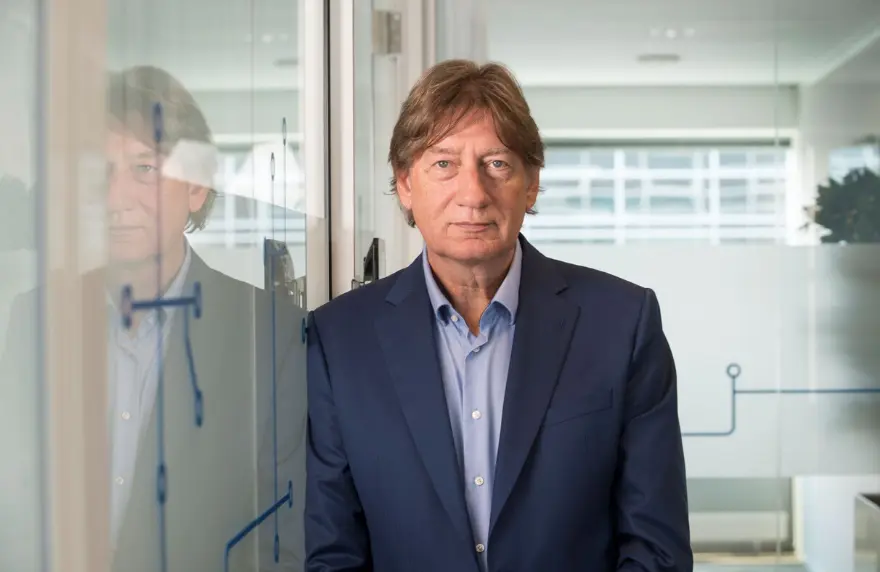Je bent bang voor de Russen en wil meer steun van de NAVO. Dan organiseer je een conferentie, nodigt alle presidenten van Rusland’s buurlanden uit, aangevuld met Europese politici, opinieleiders en vertegenwoordigers van EU en Navo.
Voeg er wat leden van de Russische oppositie aan toe en geef ruim baan aan Georgiërs die een tentoonstelling over de Russische agressie mogen organiseren.
De deelnemers aan de Riga Conferentie kregen afgelopen weekeinde in Letland een déjà vu van propaganda volgens beproeft Sovjetrecept. Het gaf bovendien een blik op een Europa waarvan de meeste West-Europeanen het bestaan niet kennen. Een Europa dat in de ban is van angst voor Rusland.
Ik geef toe dat er reden voor zorg is. Rusland heeft met zijn harde reactie op de Georgische aanval op het door etnische Russen bevolkte Zuid-Ossetië duidelijk gemaakt wie er in de Kaukasus de baas is en gaf daarmee het signaal dat verdere uitbreiding van de Navo niet wordt getolereerd.
De angst dat Rusland onrust gaat stoken onder etnische Russen in Oekraïne en Moldavië is terecht. Maar tevens is het duidelijk dat de Navo weinig kan uitrichten in een deel van Europa waar Rusland sterk en het Westen zwak is.
De propagandamachine had in Riga een heldere boodschap: Georgië was het slachtoffer van Russische agressie. Evenals in München 1938 stelde het Westen geen grenzen aan een agressieve mogendheid. Daardoor zullen Oekraïne en Moldavië onder Russische invloed komen en is het de vraag of de Navo de Baltische staten helpt als Rusland onder valse voorwendselen Russische minderheden hier te hulp schiet. Er was meer steun voor McCain dan voor Obama.
Ik denk dat deze op angst gebaseerde propaganda niet erg productief is. De collectieve angst voor Rusland keert zich nu al tegen Russische minderheden waardoor de bemoeienis van het Kremlin met deze groep een self-fulfilling prophecy wordt. Veel etnische Russen zijn in de Baltische staten statenloos of hebben een Russische paspoort. Deze aanpak is ook schadelijk omdat het tot een tweedeling binnen de Navo en de Europese Unie leidt. Wij West-Europeanen hebben ons hele veiligheidsbeleid gebouwd rond nauwe economische en institutionele relaties met Rusland en zitten niet te wachten op een herleving van de Koude Oorlog, die in dat deel van ons continent eigenlijk al een feit is.
Dat bleek vooral uit het emotionele optreden van de Georgische president Saakashvili, die in de ogen van West-Europese deelnemers zijn land geen dienst bewees. Op mijn vraag wat zijn strategische overwegingen waren om op 7 augustus van dit jaar een aanval op zijn opstandige provincie Zuid-Ossetië uit te voeren en welke inschatting hij had gemaakt over de reacties van Rusland, Amerika en Europa kreeg ik een donderpreek te verwerken over Rusland.
„Je had toch niet verwacht een antwoord te krijgen op je vraag”, vroeg een collega aan mij. „Nee”, zei ik, „ik was vooral benieuwd naar zijn reactie.” Die was veelzeggend.
Een president die emotioneel en boos wordt over de belangrijkste vraag die over de oorlog kan worden gesteld, laadt de verdenking op zich die zevende augustus irrationeel en impulsief te hebben gehandeld. Dat was dan ook precies de conclusie die door mijn collega’s werd getrokken. En dat was tevens de reden waarom velen zich afvroegen waarom deze man tijdens de donorconferentie van eind oktober 3,5 miljard euro van de Europese Unie had gekregen. Was het uit sympathie voor de Georgische zaak? Dat was wel de interpretatie van Saakashvili. Wij hoopten dat de Unie met die miljarden politieke invloed in Georgië zou kopen om zijn president voor verdere misstappen te behoeden.
Trouw




